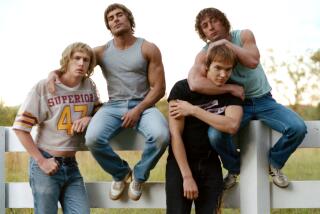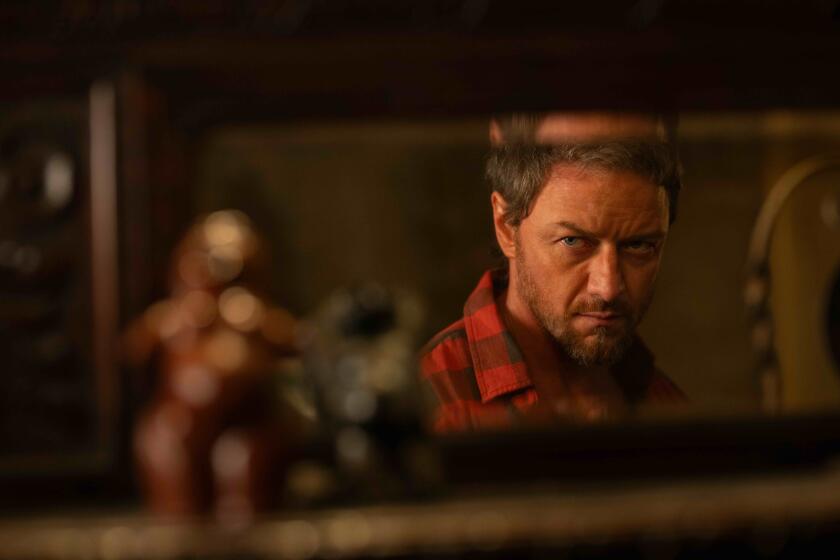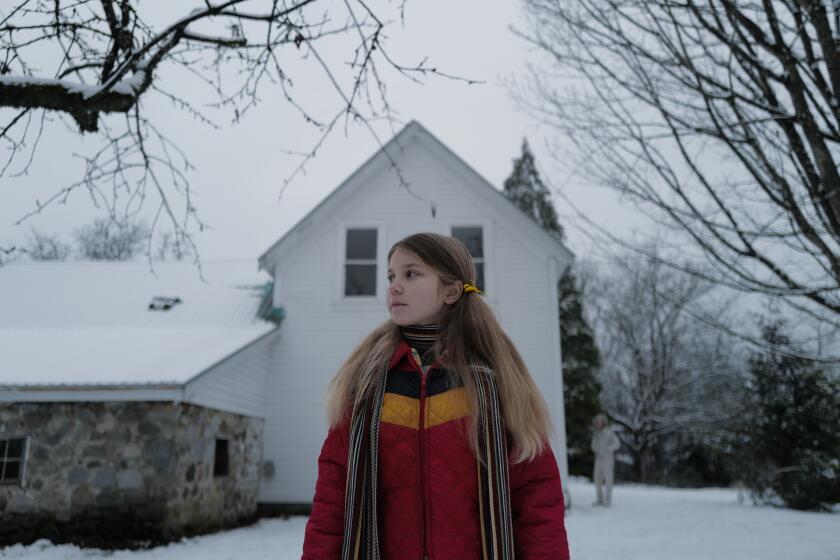History remade as parable
On Sept. 11, 1857, in a highland valley in Utah, a band of Mormon militiamen killed some 120 wagon-train settlers on their way to California. Nearly 20 orphaned children were subsequently taken in by Mormon families until they were returned to relatives back East by federal officials two years later. Twenty years after what is now known as the Mountain Meadows Massacre, only one man would be tried and executed for the events of that day.
There is much that still remains in dispute about the incident, most especially whether or not Brigham Young, then governor of the territory and president of the Mormon church, was aware of, condoned or even gave the order for the attack. The church has, not surprisingly, always maintained the position that he did nothing of the sort.
“September Dawn” dramatizes the circumstances that led to the massacre and the event itself. Writer-director Christopher Cain and co-writer Carole Whang Schutter seize upon the coincidence of the incident at Mountain Meadows having occurred on a previous Sept. 11 and run with it, trying hard to twist those events into a parable of religious fanaticism and zealotry. Cain and Schutter want so desperately to frame their story with clear-cut heroes and villains that they steamroll over much of the nuance that not only leaves the events open for interpretation but also shows the futility of retrofitting the world into absolutist terms of black and white, us and them.
The framework of the western, the story of the settlement of the West, is obviously one of enduring strength and popular fascination. Yet into a tale that touches on society-building, the rule of law and the role of faith, the filmmakers needlessly interject a love story, as a settler girl (Tamara Hope) and a Mormon boy (Trent Ford), after only a few days and a handful of furtive glances, embark upon a forbidden cross-cultural romance. The lovers seem forced together by plot rather than purpose, and instead of drawing viewers in -- the intention presumably being to humanize the events -- the romance repeatedly tosses the viewer outside the real story, the circumstances of the attack itself.
The rights and beliefs of the Mormons often still remain shrouded in mystery and misunderstanding. The talk of testaments, celestial crowns and blood atonement won’t be entirely unfamiliar to anyone who watches “Big Love,” the current television show that makes some effort to explain the Mormon point-of-view and beliefs. Cain and Schutter instead prefer to simply bang the “Mormons are freaky” drum just a little too hard and insistently.
“September Dawn” is a rare case in which one can’t help but wish the film were somehow worse than it is, for it would then be easier to dismiss outright. Jon Voight’s turn as a fictional local Mormon leader and, in particular, Terence Stamp’s performance as Brigham Young have a strange, unnerving conviction about them, and give the film an oddly engaging pull. The workmanlike craftsmanship of Cain’s filmmaking almost (but never quite) smooths over the ham-fisted way he conceives the story.
Cain’s biggest previous claim to fame as a director is for having brought the world “Young Guns,” starring Emilio Estevez, Charlie Sheen and Kiefer Sutherland as totally awesome gunslingers in distressed denim and over-moussed mullets. If “Young Guns” was as much about the 1980s as it was about the Old West, it should come as no great surprise that Cain has structured “September Dawn” to be as much about the events of 2001 and beyond as those of 1857. It likewise feels about as subtle and authentic.
--
“September Dawn.” MPAA rating: R for violence. Running time: 1 hour, 51 minutes. In general release.
More to Read
Only good movies
Get the Indie Focus newsletter, Mark Olsen's weekly guide to the world of cinema.
You may occasionally receive promotional content from the Los Angeles Times.











